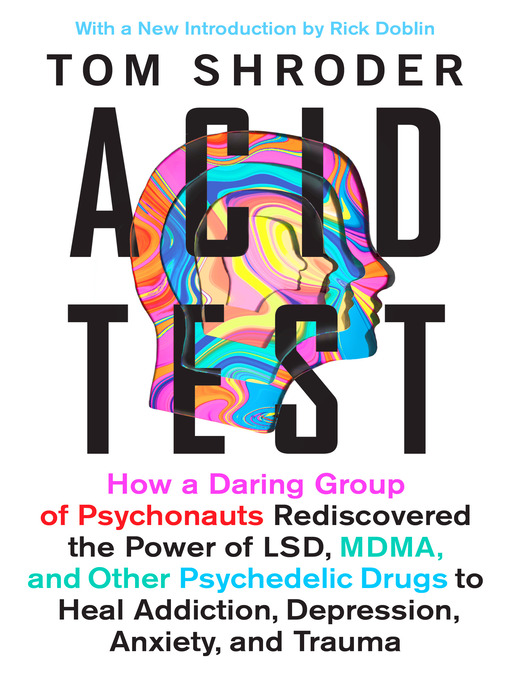“A book that should start a long-overdue national conversation.” —Dave Barry
With the F.D.A. agreeing to new trials to test MDMA (better known as Ecstasy) as a treatment for PTSD—which, if approved, could be available as a drug by 2021—Acid Test is leading the charge in an evolving conversation about psychedelic drugs. Despite their current illegality, many Americans are already familiar with their effects. Yet while LSD and MDMA have proven extraordinarily effective in treating anxiety disorders such as PTSD, they still remain off-limits to the millions who might benefit from them. Through the stories of three very different men, award-winning journalist Tom Shroder covers the drugs’ roller-coaster history from their initial reception in the 1950s to the negative stereotypes that persist today. At a moment when popular opinion is rethinking the potential benefits of some illegal drugs, and with new research coming out every day, Acid Test is a fascinating and informative must-read.

-
Creators
-
Publisher
-
Release date
September 9, 2014 -
Formats
-
Kindle Book
- ISBN: 9781101605110
-
OverDrive Read
- ISBN: 9781101605110
-
EPUB ebook
- ISBN: 9781101605110
- File size: 1792 KB
-
-
Accessibility
-
Languages
- English
-
Reviews

Loading
Formats
- Kindle Book
- OverDrive Read
- EPUB ebook
Languages
- English
Why is availability limited?
×Availability can change throughout the month based on the library's budget. You can still place a hold on the title, and your hold will be automatically filled as soon as the title is available again.
The Kindle Book format for this title is not supported on:
×Read-along ebook
×The OverDrive Read format of this ebook has professional narration that plays while you read in your browser. Learn more here.